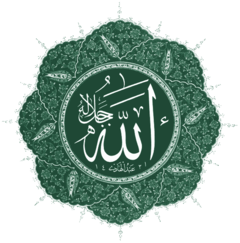Islamization
| Part of the Politics series on |
| Islamism |
|---|
 |
|
Basic topics
Political aspects of Islam
Client state Internationalism Islamic fundamentalism Pan-Islamism Shariah Ummah Antinationalism Postcolonialism |
|
Manifestations
|
Politics portal |
Islamization (also spelt Islamisation, see spelling differences) or Islamification (pejorative Muhammadization) means the process of a society's conversion to the religion of Islam.
The English synonyms,muslimization and arabization, in use since before 1940 (e.g., Waverly Illustrated Dictionary) convey a similar meaning. Muslimization has recently been used as a term coined to describe the overtly Muslim practices of new converts to the religion who wish to reinforce their newly acquired religious identity.[1]
Contents |
History
The historical phenomenon of Islamization, the conversion of individuals to Islam or the conversion of entire cities, regions or peoples, also includes the practice of converting native religious practices, culture and traditional holy sites to Muslim uses.[2] The most notable examples of the latter are the appropriation of the Black Stone in the city of Mecca that had been a site of native Arabian pagan worship and of a large and profitable pilgrimage, to become the focal point of Muslim prayer.[3][4]
Historically the term was coined by Muslims to describe a converting of "kufr" (heretic) society into an "enlightened" Islamic one.[5]
Modern day
Historians such as Ira Lapidus have concluded that since the 1970s, the Islamic world has witnessed a phenomenon called "Islamic revival" similar to a Christian revival—often associated with Islamic fundamentalism, Islamism and other forms of re-Islamization. Largely this is because scholars such as Sayyid Qutb were instrumental in the development of modern Islamic thought, and this man was a core member of the Muslim Brotherhood, a Islamist organisation that some Muslims see as the vanguard of their faith. Although one can never speak for an entire community or people, a reorientation towards Islamic values, in contrast to the Westernization moves by various Arab and Asian governments in the 1950s and 60s, appears to be taking place. The main effect appears to be a return of the individual to Muslim values, communities, and dress codes, and a strengthened community.[6]
Another development is that of transnational Islam, elaborated upon by the French Islam researchers Gilles Kepel and Olivier Roy. It includes a feeling of a "growing universalistic Islamic identity" as often shared by Muslim immigrants and their children who live in non-Muslim countries:
"The increased integration of world societies as a result of enhanced communications, media, travel, and migration makes meaningful the concept of a single Islam practiced everywhere in similar ways, and an Islam which transcends national and ethnic customs."[7]
This does not necessarily imply political or social organizations:
"Global Muslim identity does not necessarily or even usually imply organized group action. Even though Muslims recognize a global affiliation, the real heart of Muslim religious life remains outside politics—in local associations for worship, discussion, mutual aid, education, charity, and other communal activities."[7]
However, some commentators have shown concern at the rapidly growing Western European Islamic population, the lack of assimilation of said migrants, and that these groups are allegedly potential breeding grounds for terrorists. A third development is the growth and elaboration of transnational military organizations. The 1980s and 90s, with several major conflicts in the Middle East, including the Arab-Israeli conflict, Afghanistan in the 1980s and 2001, and the three Gulf Wars (1980-89, 1990-91, 2003) were catalysts of a growing internationalization of local conflicts. Figures such as Osama Bin Laden and Abdallah Azzam have been crucial in these developments, as much as domestic and world politics.[7]
See also
- Islamization of knowledge
- Arabization
- Islamic revival
- Spread of Islam
By area:
- Islamization in Iran
- Iranian Cultural Revolution
- Islamization of Bosnia and Herzegovina
- Islamization of Palestine
- Eurabia
By method:
- Islamic Missionary Activity
- Conversion to Islam in prisons
Other:
- Banu Qurayza
- Criticism of Islamism
- Ethnic cleansing
- Christianization
- Stop the Islamification of Europe - Political group
Notes
- ↑ Lindley-Highfield, M. (2008) '"Muslimization", Mission and Modernity in Morelos: the problem of a combined hotel and prayer hall for the Muslims of Mexico'. Tourism Culture & Communication, vol.8, no.2, 85–96.
- ↑ For comparison, Christian parallels in each area are discussed at Christianisation.
- ↑ Structure and Creativity in Religion: Hermeneutics in Mircea Eliade's Phenomenology and New Directions, Douglas Allen, Walter de Gruyter, 1978 p. 141
- ↑ Muhammad: Islam's First Great General, Richard A. Gabriel, University of Oklahoma Press, 2007, p. 159;The Historical Muhammad, Irving M. Zeitlin, Polity, 2007, p. 48
- ↑ www.islamicbookstore.com/b4974.html
- ↑ Lapidus, p.823
- ↑ 7.0 7.1 7.2 Lapidus, p.828–830
References
- Devin De Weese, Devin A, Islamization and Native Religion in the Golden Horde, Penn State Press, Sep 1, 1994, ISBN 0-271-01073-8
- Lapidus, Ira M. 2002, A History of Islamic Societies. Cambridge: Cambridge University Press.
External links
|
|||||